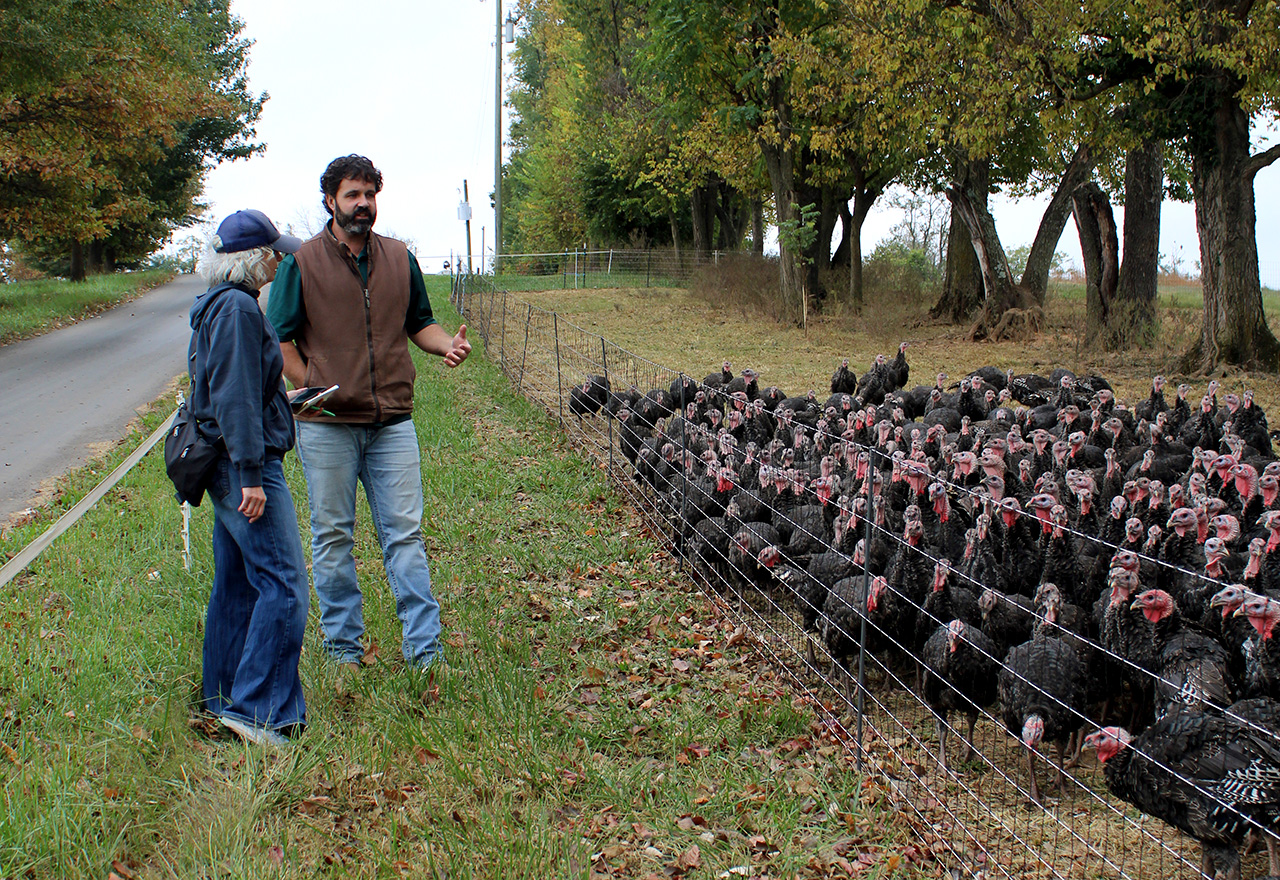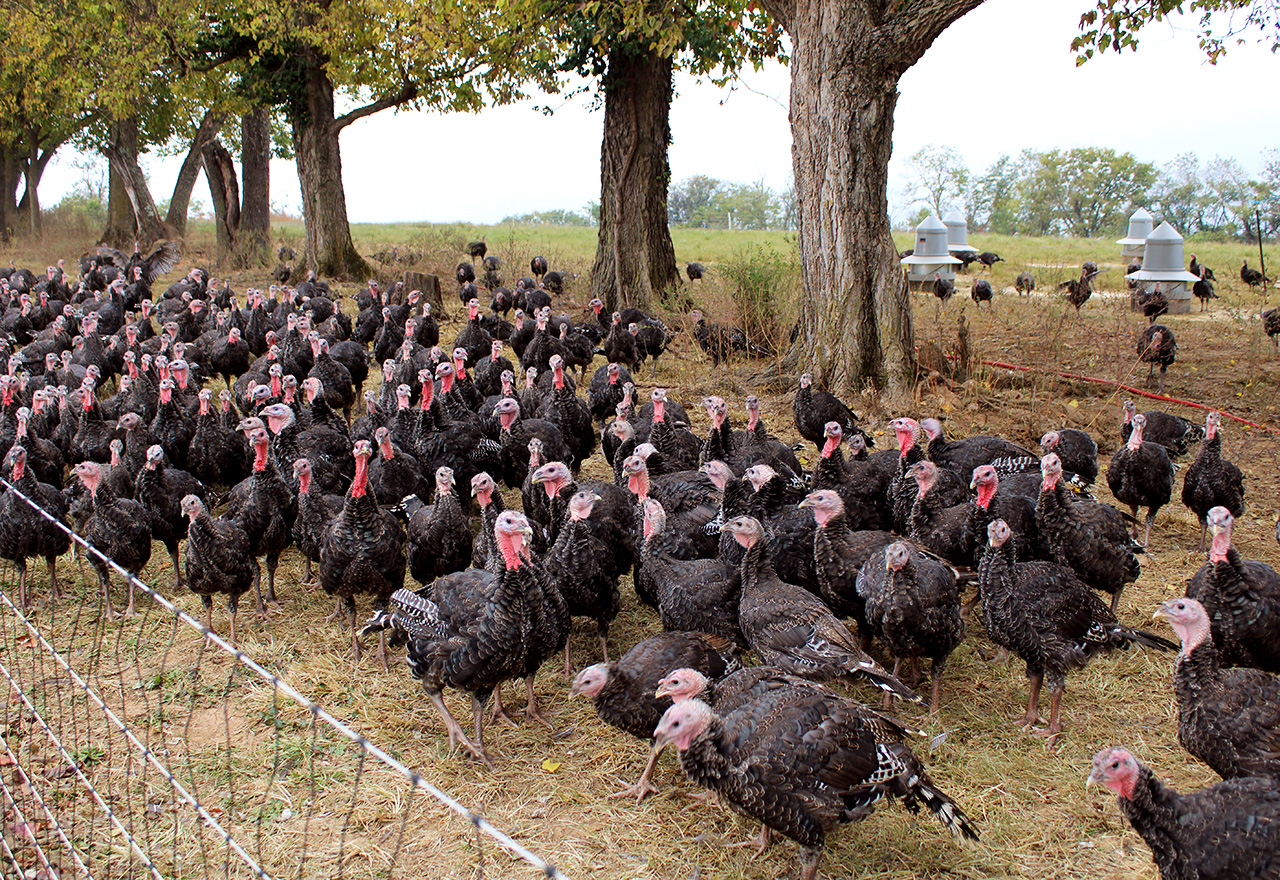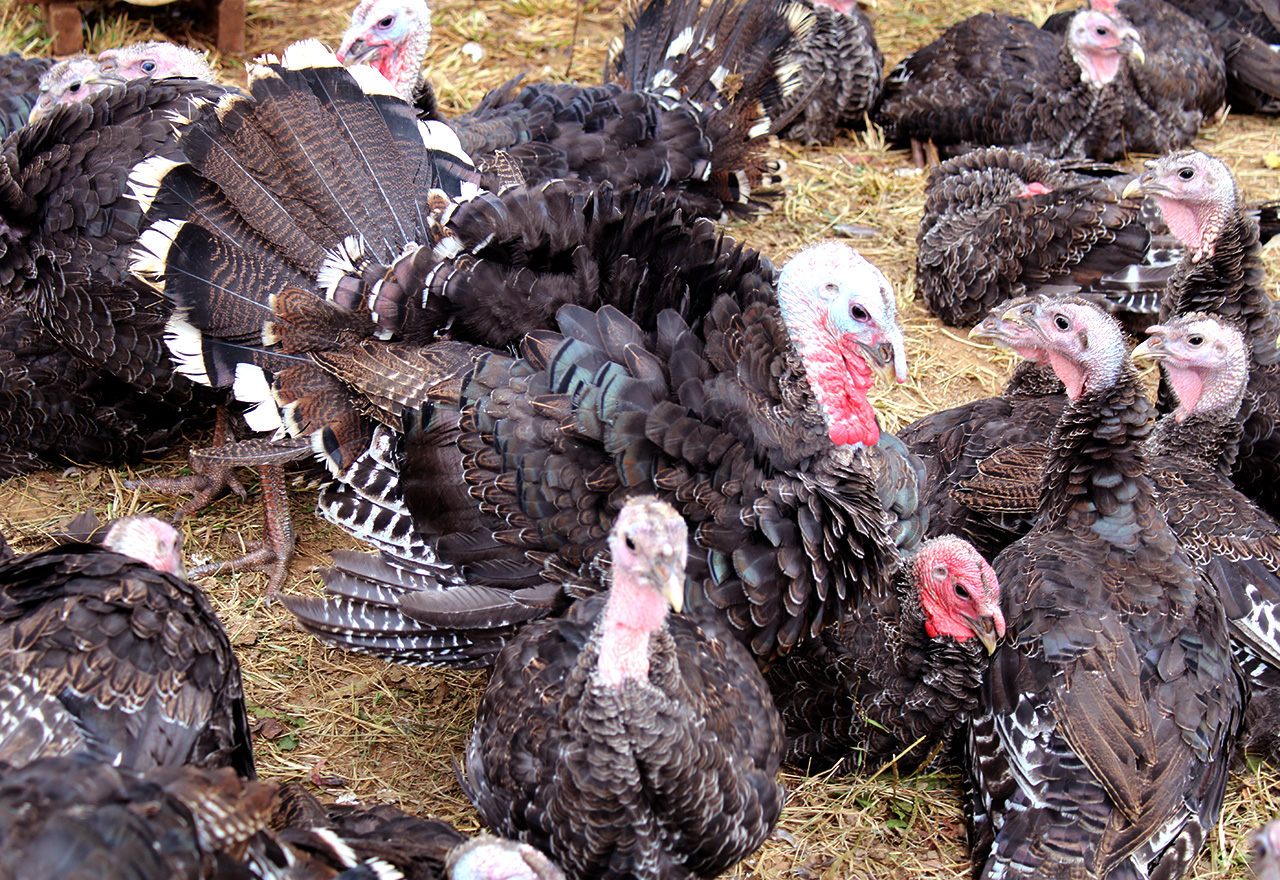Farmer Chris Damewood will never forget the evening during the pandemic when a panicked stranger knocked on his door asking how soon he could get meat from Ayrshire Farm. Damewood’s response: Your local food system isn’t going anywhere.
Ayrshire is a fulcrum of that food system. The 800-acre farm (not including 1,500 certified acres for cattle grazing and hay production) in Upperville, Virginia, provides customers with certified organic meat from some of the most ethically, thoughtfully raised animals in the US. Naturally, they earn top marks on Cornucopia’s Organic Scorecards for their turkey, chicken, and beef. (Ayrshire also sells certified organic pork, so rare that Cornucopia doesn’t even have a scorecard for pork.)
Over the past decade, Ayrshire has worked with neighboring farms to transition their land to organic, providing a steady source of income to these operations and a reliable supply of hay. (Ayrshire manages the land and paperwork for these operations.) Also extremely rare, Ayrshire operates its own processing facility, providing the necessary local food infrastructure that allows other farms to exist, along with a historic gristmill that sells stone-ground certified organic heritage grains. Hunter’s Head Tavern rounds out Ayrshire’s holdings, with a true farm to fork experience. Order Ayrshire chicken pot pie on the menu and add a “meat box” to your bill so you can take home their chicken and recreate the dish in your own kitchen.
It all adds up to a local food mecca for people who care deeply about their food. That passion is rooted in the firebrand at the helm: tech innovator and Cisco Systems co-founder Sandy Lerner, an entrepreneur who refuses to be a bystander to the consolidated, extractive industrial food system. Lerner has farming in her blood: she grew up on a California farm and eventually earned enough money raising cattle to pay her college tuition. After founding Urban Decay, one of the first cruelty-free cosmetics companies, she bought Ayrshire Farm in 1996, parlaying her success as an entrepreneur into “growing food that doesn’t cost the earth.”
Two decades ago, Learner hired Damewood, who learned how to be an organic farmer by spending time with farmer elders in his community, reading books about soil, and volunteering on other organic farms on his days off. He takes a certain level of pride in the fact that his father, who didn’t always understand Damewood’s career choice, now looks forward to Ayrshire turkey on the Thanksgiving table.

In the weeks leading up to Thanksgiving and Christmas, Ayrshire provides certified organic turkey to hundreds of customers, some of whom travel a few hours just for the occasion.
Twice annually during the county’s seasonal farm tours, you can find Damewood walking the pastures and serving as tour guide on the “Ayrshire Express,” the trolley that takes thousands of curious customers onto its operations to walk the pastures, learn about the farm’s production practices, and get up close with its animals. This level of transparency, he says, means the farm doesn’t need to resort to “word play” marketing.
On the fall tour, the striking Broad-Breasted Bronze turkey is the main attraction. With its metallic black feathers, this turkey breed instantly expands awareness of the choices that exist in the Northern Virigina regional food system. The morning Cornucopia visited, the flock scratched and pecked, inching close to the fence in one noisy mob to check out the visitors. Turkeys are social and curious, and Damewood’s 10-year-old son can often be seen walking the perimeter of the area just to watch the turkeys obediently follow him.
Ayrshire turkeys spend the majority of their lives outside, where turkeys naturally want to be. They have plenty of trees for shade. A fluorescent green inflatable near the birds’ mobile housing keeps predators away. (The farm is Certified Predator Friendly, meaning they have made a written commitment not to harm or kill any key species on land used in production.) The farm staff checks on the birds three times daily, often more, moving feeders and shelters every 10-14 days to keep the grass and birds healthy.

The scene is a stark comparison to the operations that bring us the majority of birds on our Thanksgiving table. Consumers want their turkey, and the industrial food system incurs high costs paid by all of us in order to fulfill a massive, unceasing appetite for cheap meat. By choosing a breed that can live out its life on pasture and providing eaters with a satisfying meat-to-bone ratio and rich flavor, Ayrshire has carefully balanced consumer expectations with a production style that aims to do as little harm to animals and the Earth as possible.
Most of Ayrshire’s animals are heritage breeds, animals that have been brought to the cusp of extinction by the industrial food system. Among those Ayrshire rare breeds are the Gloucestershire Old Spot hogs, a UK breed that traditionally lived its life outdoors in an orchard, where it feasted on fallen, decaying fruit. On the day Cornucopia visited, we quietly encountered a litter of Gloucestershire Old Spot piglets and the hardworking mother — within six days of farrowing. “Not a lot of sows are going to be able to thrive outside like that mother,” Damewood says. “It’s nature.”
Ayrshire’s prices reflect the true cost of exemplary production practices. A 15-pound turkey costs around $200. A 30-pound meat box is $340. Customers in this regional food system are willing to pay the premium, not only because of the ethical business model, but because animals raised outdoors on a nutritious diet taste better.
While Damewood recognizes the significant resources available to him, he thinks a lot about his role beyond Ayrshire and beyond Northern Virginia and hopes he can help inspire similar models in communities throughout the US. He believes consumers can play an important role.
His advice: Use Cornucopia’s Organic Scorecards to learn about what’s already being done in other communities, he says. Be curious about your food. Get to know a farmer, even if it means driving an hour to have a conversation with one. And let folks know that you aren’t interested in buying a turkey that spent the majority of its life indoors.
“If consumers ask enough questions and drum up enough interest to where local farmers all over the country can say, ‘Hey, there’s a market for this,’” he says, “we can change the system.”
To see more of the Ayrshire Farm turkeys and learn what makes an organic turkey top-rated on our scorecards, check out this video of footage from the farm.


